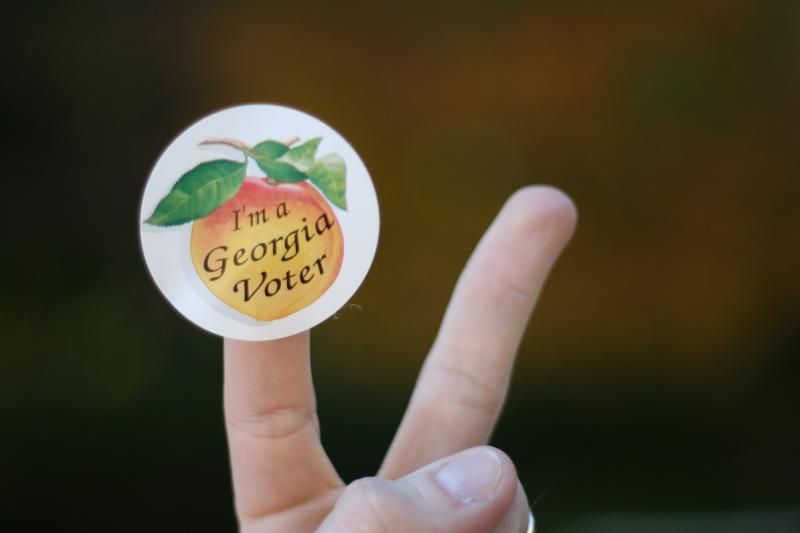Section Branding
Header Content
What Happens If Ga. Governor's Race Heads To A Runoff?
Primary Content
Nearly 2.1 million Georgians have cast ballots during early voting. The previous early voting turnout record in a midterm election was 945,507, officials said.
Polls show the governor’s race is tight, and a third-party candidate could get enough votes to force a runoff.
GPB’s Stephen Fowler has been covering the election. He spoke with Rickey Bevington to talk about what could happen the day after the election.
Rickey Bevington: First, let’s talk about what will happen for most races that are on the ballot Tuesday.
Stephen Fowler: For most of the races, someone gets above 50 percent, or 50 percent plus one vote, according to state law. That person is declared the winner once the counties and the secretary of state’s office certify the results. In races where there are two candidates, that’s pretty much guaranteed.
But for the secretary of state, public service commissioner and governor races, a third-party candidate could split the vote enough where these tight races are happening.
After Election Day, there are some absentee and provisional ballots that still have to be counted, too, so not all races will officially have a winner by bedtime on the 6th
Bevington: So what about those tight races; what happens next in regards to a runoff?
Fowler: If none of the candidates get 50 percent plus one vote, the runoff would be Tuesday, Dec. 4, so it’s a tight turnaround for county elections officials and voters.
The long, arduous process of testing machines, preparing the ballots, mailing out military and absentee ballots, and other absentee ballot process has start all over again.
There’s not as much of a requirement for counties to do early voting for a runoff, like there is in the general election, so Georgia’s 159 counties may all have different plans.
That would mean several more weeks of campaigning, fundraising, ads and convincing people to vote by mail or show up on the runoff Election Day. Far fewer voters turn out than for the general election.
Bevington: In the governor’s race, there are two main scenarios that leaves Georgians not knowing who the next the governor is. The race could go to a runoff or one candidate wins by a narrow margin. What is the process if a candidate wants to challenge a close result?
Fowler: This is where it gets interesting. State law says that if a candidate loses by less than 1 percent of the total votes cast, then there’s a possibility for a recount. That has to be filed by two business days after election.
There’s also something called a recanvass, where individual counties can go through and count their votes again.
If the margin is outside 1 percent, a candidate could file a challenge to the results before certification if there is a discrepancy or evidence of some sort of error.
Bevington: Is a recount because of a vote within 1 percent uncommon?
Fowler: Well, it's not uncommon, but it's not common. Usually, most races like for the Georgia State House and legislature really aren't that close. But for the ones that are, there is legal recourse for people wondering if something's happening. Really, this is a case of every vote does count.



